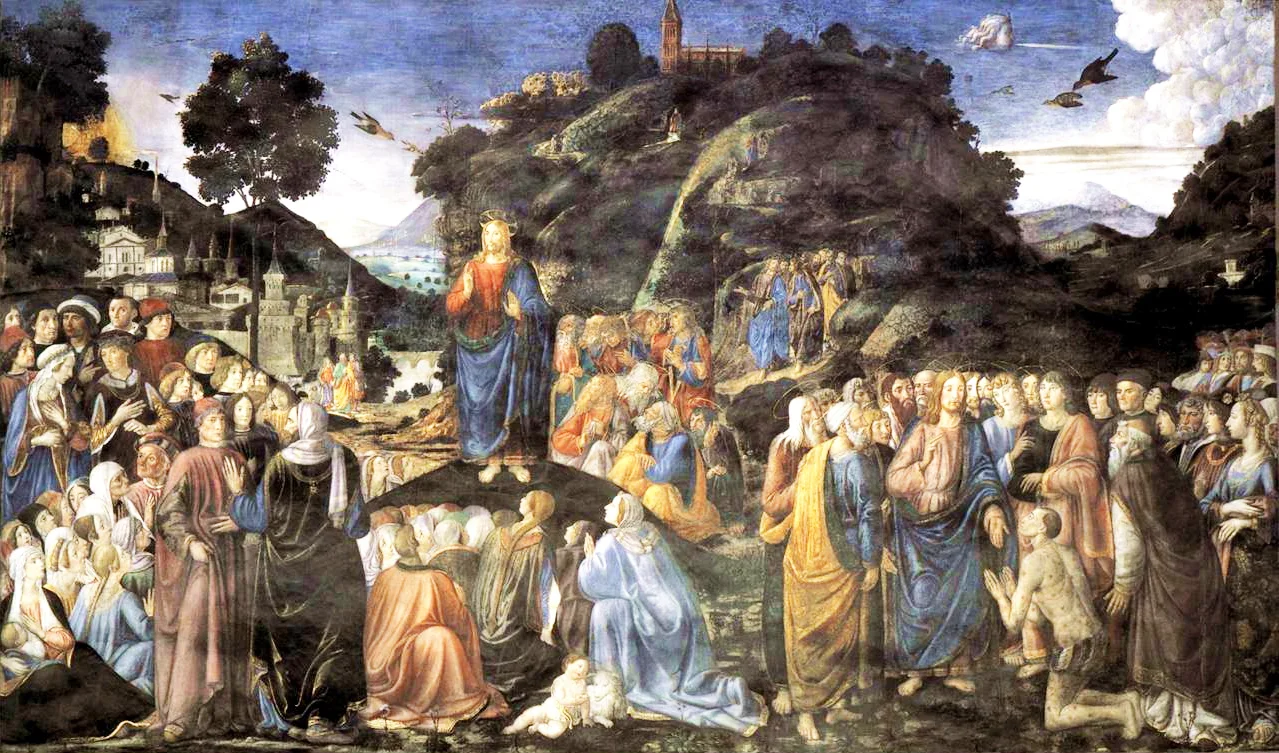Dominica V per Annum C
10 February 2019
I’ll never forget the moment. It was seven years ago this month. The Archbishop wanted to talk. He told me he was thinking of naming me the Pastor of St. Monica and he wanted to know what I thought about that. It came as a complete shock. While being very happy at the idea of coming here, I was struggling to put words together. When bishops make assignments for priests they are looking for a clear answer, either a “yes” or a “no.” And they aren’t really looking for “no!” I was stammering and I must have sounded as shocked and uncertain as I felt. The proof of how unexpected this was to me is that the Archbishop called me a week later to tell me he was also naming me the Vocation Director. In that phone call he admitted he had intended to give me both assignments at once but upon seeing my reaction to St. Monica he said he had decided to slow roll the entire plan! So, what was going on interiorly in me when I heard the news that I was being given a new calling, a new mission for God’s Church and His people? I was first thinking of all the reasons why I’m not qualified. On some days you might want to say, “Father, you should have followed that first instinct!” Any time a human being is employed to God’s work we can easily find the ways he is unworthy and not qualified. But I trust that despite that we can all see the good things God manages to do even with weakness and inability and with someone like me at the helm.
When God calls, don’t we quite frequently and readily first think of the reasons it is not a
good idea, the reasons why it won’t work? That’s a human tendency that the Scriptures show us. In the first reading Isaiah sees a vision of God’s Temple. Isaiah experiences a call to a mission, to his vocation. What is Isaiah’s first reaction? He thinks of the reasons the vocation and mission can’t work. “Woe is me, I am doomed! For I am a man of unclean lips, living among a people of unclean lips.” But God’s ministering angel comes with purifying fire, touches Isaiah’s mouth, and says “See, now… your wickedness is removed, your sin purged.” In other words, Isaiah’s unworthiness is a given. Of course, Isaiah is unworthy and sinful and incapable. The call is God’s call and He’s the One who equips the person He calls. Being made clean and forgiven by God Isaiah can then answer, “Here I am, send me!”
In the Gospel selection, Jesus calls Simon Peter as he begins to bring together his apostles. Imagine how embarrassing it would be to be an expert fisherman with a fishing business, having just returned after a long night of catching nothing, to then have a carpenter get into your boat and give you fishing guidance: “Put out into deep water and lower your nets for a catch.” Simon Peter is actually qualified at fishing and he first notes his objection but with humility he is obedient. And in the face of a miraculous and large catch of fish, Simon follows that human tendency to consider first how God’s call won’t work and how unworthy he is. Falling at the knees of Jesus, Simon said, “Depart from me, Lord, for I am a sinful man.” Sounds like Isaiah, no? Jesus indicates that he will guarantee Simon Peter’s mission and vocation when he tells him, “Do not be afraid; from now on you will be catching men.”
In the second reading St. Paul’s words resonate so clearly to us in our own tendency to discount what God can do with us. The difference with St. Paul is that he knows his unworthiness but he believes that far more important is God’s grace and what it can do in him. Paul reminds the Church of Corinth of his vocation and mission to preach the Gospel he received. He goes on to list many others who received the Gospel before him. And then he says this about himself: “Last of all, as to one born abnormally, he [the Resurrected Lord] appeared to me. For I am the least of the apostles, not fit to be called an apostle, because I persecuted the church of God. But by the grace of God I am what I am, and his grace to me has not been ineffective.” Paul knows his grave sin, persecuting and murdering Christians, but he knows that more powerful than even the destructiveness of his personal sin is the life and strength of God. What a truthful, humble, hopeful, and healing phrase it is to say with St. Paul: “But by the grace of God I am what I am!” May that be our phrase too when called by God to our vocation or to some particular mission. Yes, I am unqualified, a sinner, and unworthy, but by God’s grace I am called: I am what I am!
To fulfill the call to be holy we each are given a vocation which defines the larger arc of our life and which carries with it dignity, duties, and responsibility. But God may also give us a particular work at various moments of life. We can call this a mission, some thing to accomplish that requires specific attention and effort but which may not define our whole life or be long term, like a vocation. What godly calling and mission is yours? What godly calling and mission seems unlikely in your opinion? What is God asking of you that you might first object to and raise the reasons why you are not qualified? “God, I can’t be…” fill in the blank. “God, I can’t do…” fill in the blank. Like Isaiah, like Simon Peter, like Paul, what is God’s call to you to vocation and to mission that you think just can’t be? You see, a lesson today is that we think more of ourselves instead of God. That common tendency reveals the error. Do we really think the source of power for vocation and mission comes from ourselves? We first consider our skill, our strength, and our preparation. We need to first think of God and what He can do. What He can do even with you. Even with me. Of course, we certainly need to have a healthy awareness of our limitations and our unworthiness. Such awareness permits us to focus where we need to call out to God in prayer for what only He can provide. The Scripture lesson for us today is not a call to ignore our inabilities. Rather, the lesson is to think first and more about God’s abilities.
What might this say to us in various examples of callings? A teenager or a child might first fear to be a disciple among peers in school and in groups of friends. You fear being rejected or standing out for being an example of Christian faith. Trust that God will give strength in the lunchroom and in hallways. Someone dating might face the struggle to live that relationship in purity and chastity as is God’s moral teaching. If someone is a follower of Jesus he or she has a mission to stand against the societal trend to live together before marriage. Our doubts might make us consider our weakness in the face of the call to live in purity. But turn to God’s grace first. Some young men may have a vocation to be priests. They might tend to say, “That can’t be me. God couldn’t choose me with my sins.” Oh really? Listen to the voice of the Master, “From now on you will be catching men.” Spouses have a vocation to sacrificial love, to be faithful to one another, and to be open to the gift of children. But at times it’s not easy. There are fears and legitimate challenges and exhaustion. Raising children takes so much. Spouses may want to doubt the call and think themselves incapable. But the dynamic of the Scriptures today speaks to you: “Do not be afraid.” God’s grace “has not been ineffective.” Maybe someone who struggles with same-sex attraction can’t at first accept the vocation to single chastity. Could the Lord really expect a life of such purity when the world speaks the exact opposite? Remember: It won’t be your own strength. Think more of what God can do in you. Maybe the invitation of God is to be more generous or sacrificial in financial giving or in lending your own talents to some area of parish life or to some Christian work done out in the world. Is your first response fear that you won’t have enough? How can I give more from what little I have and with my debts? Put out into the deep and let God’s power and work bless your generosity.
What vocation and what mission might God be giving you? What is your first response? Is it, “I can’t”? Or is it, “God can”? Today we have the example of only three of the many and countless unworthy servants God calls: Isaiah, Simon Peter, Paul. God’s grace equipped them for vocation and mission. God’s grace filled what was lacking in them and transformed them for the task at hand. Surely no one here could be more unworthy or less likely a candidate than Paul who had been a murderer! If God can call and equip them, He does the same with the vocation and mission that He gives you. He says to us: Your wickedness is removed, your sin purged. Put out into the deep. Do not be afraid. May our response be: “By the grace of God I am what I am, and his grace to me has not been ineffective.”



